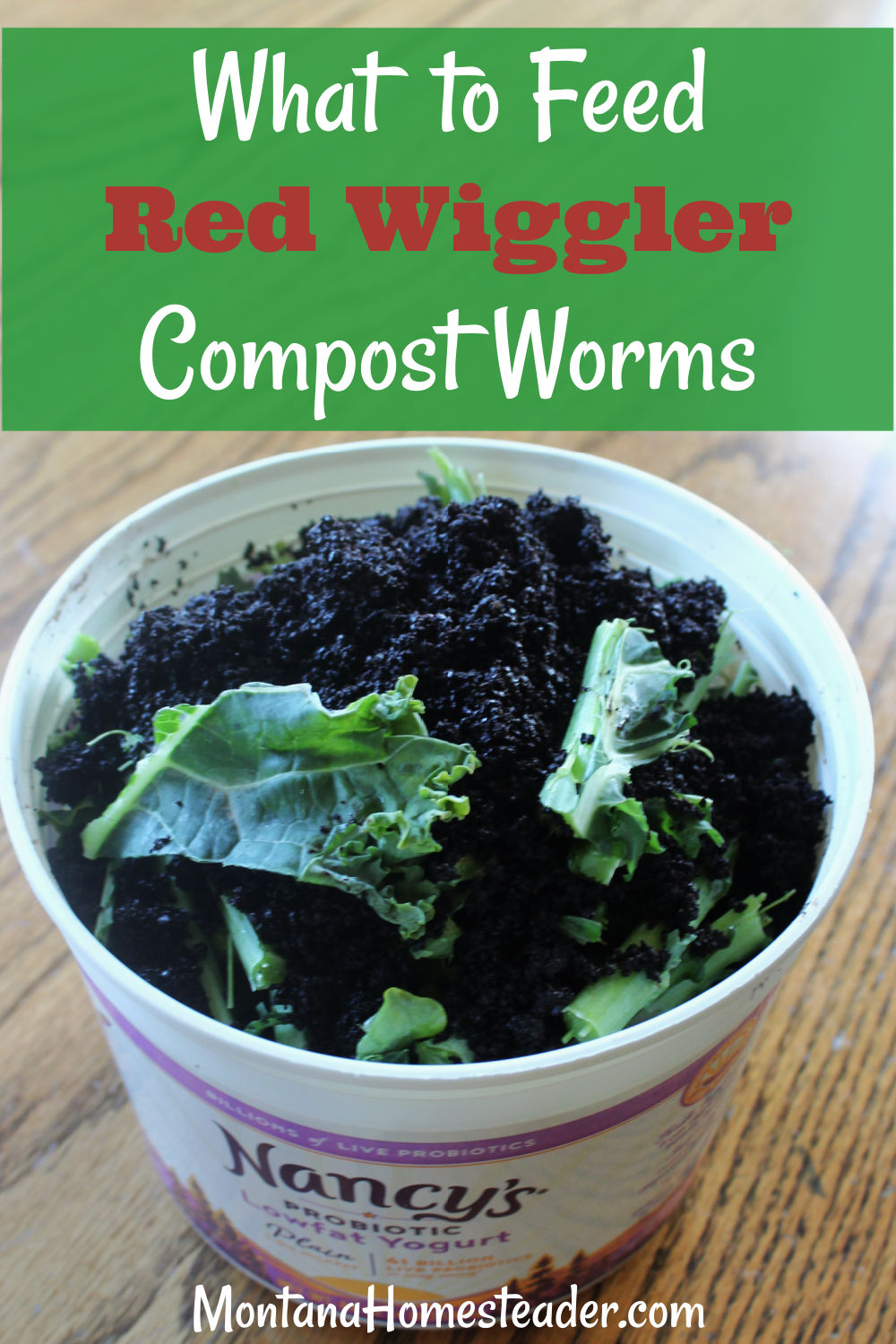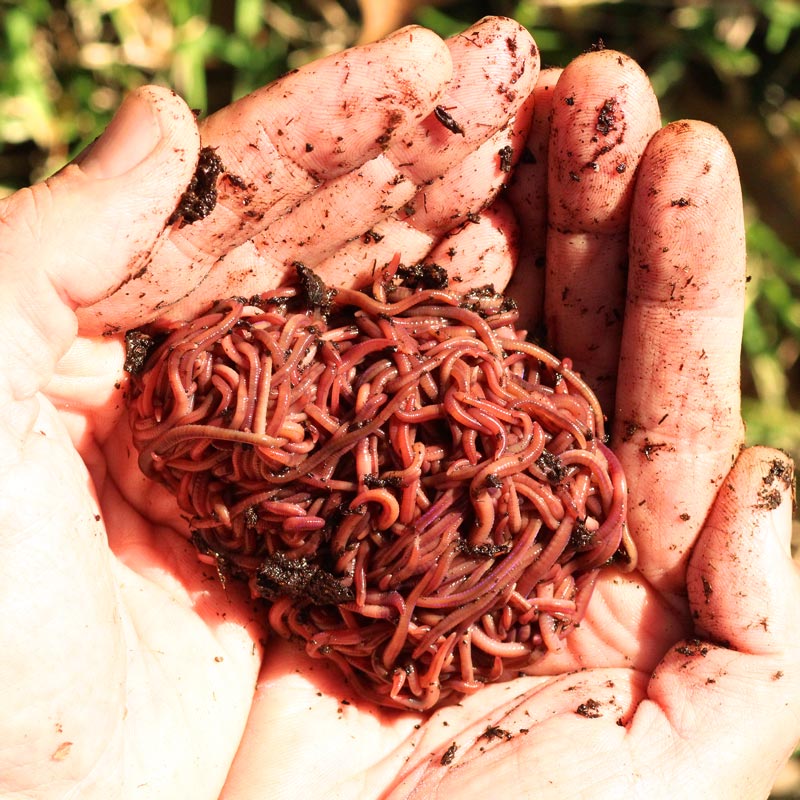Lake Hickory Bait Provides the Resources You Need for a Perfect Lawn
Lake Hickory Bait Provides the Resources You Need for a Perfect Lawn
Blog Article
Red Wigglers 101: Everything You Required to Know for Thriving Gardens
Red wigglers, or Eisenia fetida, play an essential function in sustainable gardening techniques, functioning as reliable decomposers that convert natural waste right into important vermicompost. Recognizing their habitat, nutritional preferences, and the myriad advantages they offer can transform your horticulture strategy (Red Wiggler Express). As these worms prosper in specific conditions, their care and management are crucial for optimizing their contributions to dirt wellness. The question stays: what actions can you require to harness the full potential of these impressive microorganisms in your very own garden?
Recognizing Red Wigglers

Red wigglers flourish in atmospheres abundant in natural product and wetness. Red Wiggler Express. They have an one-of-a-kind digestive system that permits them to process food scraps quickly, eliminating castings that are packed with crucial nutrients such as nitrogen, phosphorus, and potassium. These castings enhance soil structure, boost water retention, and foster helpful microbial activity, every one of which add to durable plant health and wellness
Additionally, red wigglers can endure in varied problems, making them adaptable to various horticulture practices, consisting of interior and exterior composting systems. Their ability to take in large quantities of organic waste daily placements them as important allies for both home gardeners and business growers. By integrating red wigglers into horticulture efforts, one can considerably boost dirt fertility and assistance sustainable horticulture methods.
Suitable Environment for Red Wigglers
Developing an ideal environment for red wigglers is essential for optimizing their composting capabilities and total health. Red wigglers prosper in damp, dark, and well-aerated habitats, which very closely resemble their all-natural environments in leaf trash and decaying raw material. An ideal environment needs to offer a temperature level variety in between 55 ° F and 77 ° F(13 ° C to 25 ° C), as severe temperatures can stress or hurt the worms.
The bedding material, such as shredded paper, cardboard, or coconut coir, should be kept damp however not overly damp, as too much dampness can bring about anaerobic conditions harmful to worm health. In addition, a pH level between 6.0 and 7.5 is ideal, guaranteeing a well balanced environment.
Proper aeration is equally essential; it enables oxygen blood circulation and avoids the buildup of dangerous gases. A container or container created for vermicomposting ought to have drain openings to get rid of excess moisture and promote air movement. Routine monitoring of these conditions is crucial for preserving a thriving red wiggler population, eventually improving their effectiveness in breaking down organic waste and enhancing garden dirt.
Dietary Requirements and Preferences

Red wigglers display certain choices; they are particularly fond of softer, breaking down products over more challenging or even more coarse substances. It is necessary to avoid feeding them citrus peels, onion, and garlic in big quantities, as these can be harmful. In addition, meat, dairy, and oily foods must be left out, as they can bring in insects and create unpleasant odors.
(Red Wiggler Express)To maintain optimal wellness, a balanced mix of eco-friendly and brownish materials is advised. Environment-friendly products, such as vegetable scraps, provide nitrogen, while brown materials, like cardboard and dried fallen leaves, supply carbon. Keeping an eye on the wetness content and making sure a consistent food supply will even more boost their growth and composting capabilities. By catering to their dietary demands, garden enthusiasts can promote a flourishing populace of red wigglers in their compost systems.
Advantages of Utilizing Red Wigglers
The amazing benefits of making use of red wigglers in horticulture expand much beyond their role in composting. These flexible organisms add significantly to dirt health, enhancing vitamins and mineral accessibility and advertising microbial task. By freshening the dirt as they tunnel, red wigglers boost water drainage and origin infiltration, developing an optimal environment for plant development.
In addition, red wigglers are efficient recyclers of organic waste, transforming it right into nutrient-rich castings that work as an excellent natural fertilizer. These spreadings consist of useful bacteria and essential nutrients, such as nitrogen, phosphorus, and potassium, which are important for plant advancement. The slow release of nutrients from worm spreadings guarantees a stable supply, minimizing the threat of nutrient leaching and advertising sustainable horticulture methods.
In addition, the presence of red wigglers can aid subdue soil-borne plant diseases. Their digestive procedures generate compounds that hinder harmful virus, thereby boosting plant health and wellness. Lastly, using red wigglers fosters a much more sustainable gardening method by lowering dependence on chemical fertilizers and promoting a closed-loop system, where waste is transformed into valuable resources. Generally, including red wigglers into horticulture techniques supplies a plethora of environmental and agricultural advantages.
(Lake Rhodhiss Bait)
Composting With Red Wigglers

To launch a successful vermicomposting system, choose an ideal container with appropriate air flow and drainage. The excellent atmosphere for red wigglers includes a wet, dark setting with temperatures in between 55 ° Visit Your URL F and 77 ° F. Begin by layering shredded paper, cardboard, and food scraps, guaranteeing a balanced mix of carbon and nitrogen-rich materials.
Red wigglers prosper on veggie peels, fruit scraps, coffee grounds, and eggshells, while preventing meat, dairy products, and oily foods that can bring in bugs. Consistently keep track of wetness levels; the bed linens needs to perspire yet not soaked. Harvest worm spreadings every few months by dividing the worms from the compost, which can after that be utilized straight in yards or saved for later usage.
Carrying out vermicomposting not only reduces land fill waste yet also improves yard soil, advertising healthy and balanced plant development and lasting horticulture practices. Welcome this environmentally friendly technique to enhance your horticulture undertakings.
Final Thought
In summary, red wigglers are crucial organisms for boosting garden efficiency via reliable composting. By making use of red wigglers, gardeners can significantly improve soil top quality and nutrient schedule, cultivating much healthier plant development.
Report this page